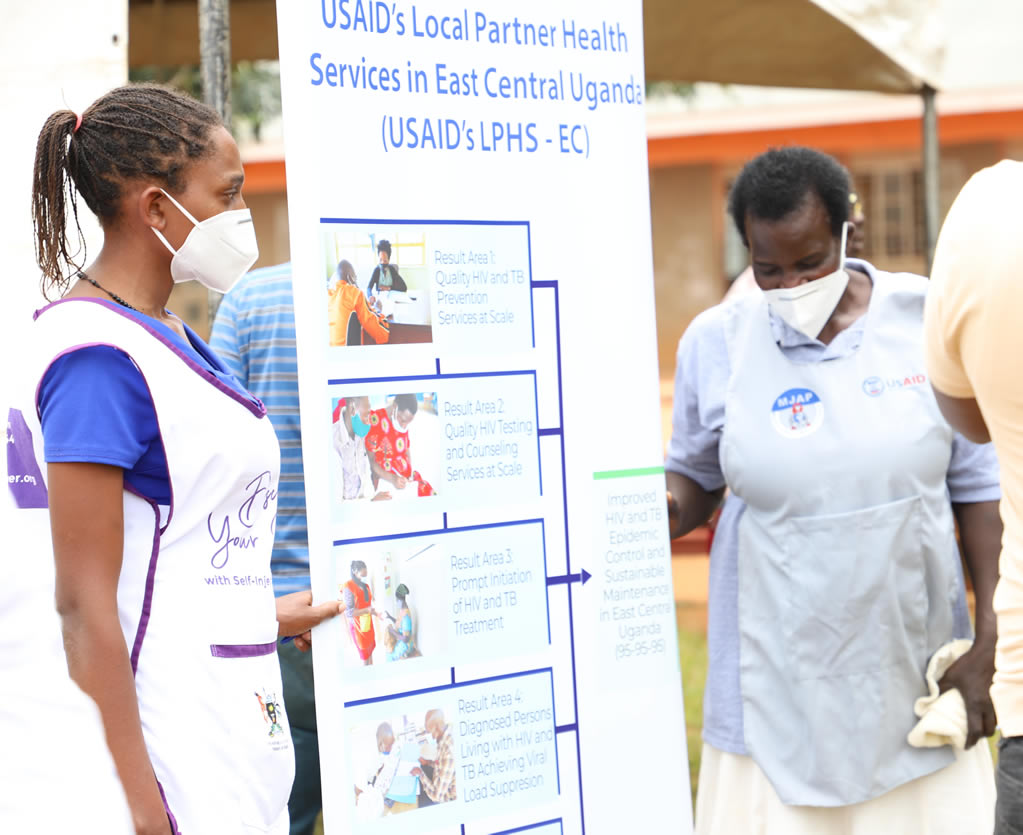Testing over the weekends at clients’ homes to improve index testing yield: The Kiyunga HC IV experience.
HIV Testing at clients’ homes over the weekend has enabled the integrated provision of health care and treatment services to PLHIV. Fear, stigma, denial, and structural barriers such as transportation to the health facility have been addressed, hence registering commendable yields for index testing.
Index testing is critical in identifying individuals living in an index client’s home before they become ill. In October 2022, scale-up of index testing was a challenge with only 15% of the eligible 276 line-listed clients tested. This was mainly due to stockouts of HTS kits and ARVs, poor knowledge of the illness and medication by health workers, inadequate counseling, poor attitude of health workers, stigma and discrimination, distance and transport costs, fear of disclosure of HIV infection, and lack of social support among others. “People struggle to earn a living and many times this determines their way of life compromising health but prioritizing work to earn a living”; said Fatumah.
The Ministry of Health (MOH) recommends the use of an HIV index testing model that involves the provision of HTS to family members of known PLHIV (index clients) who are at increased risk of HIV infection such as sexual partners, children, and siblings under 15 years. Index testing is a proven HIV-positive high-yielding modality that has contributed immensely to the TX-CURR growth of the facility. The facility staff generates line lists and work plans that guide them on how, where, and when to visit the client’s line listed and plan to conduct the community index over the weekends. Community health workers i.e. linkage facilitators are attached to specific clients and before they are visited, they do phone call contacts to communicate and make appointments, especially for those whose index testing is due but cannot make it to the facility. The linkage facilitators are responsible for follow-up before the team moves to the community, conducting a mop of all the clients in the surrounding and do referrals for the cases that cannot be handled from the community.
A motorcycle is the means of transport used to reach the homesteads line listed and sometimes depending on the client, they park at a distance and move on foot to avoid the surroundings associating them with the service. Some clients prefer receiving the service in the traditional shrines and the health workers are seen as customers. Index testing is client-centered and focused, confidential, voluntary, non-coercive, free, non-judgmental, cultural, linguistic approach, assessable, and available to all. Index testing hinges on client referral whereby the partners and other family members are encouraged to test, and referrals are provided for further support.
To achieve the above and to fit into clients’ work schedules, the health workers had to change their strategy. According to Fatuma Kiguli, Counsellor Kiyunga HIV, “We resorted to working on weekends and finding our clients at their homes because they are comfortable at home, after all, they are saving on transport, free from their busy schedules but also ready for us at a conducive environment”. Partner notification is important to create an unthreatening and non-judgemental environment in which the index person is comfortable talking, and the clients here feel at peace since they are not easily judged by others. Fatuma further mentioned that since they started weekend index testing, the facility has surpassed their biannual COP22 target and is currently at 86.5%(418/483).
The above achievement has been made possible by the facility staff who work as a team with commitment and passion exploring all avenues and ensuring they don’t miss out on any opportunity for service provision to the clients. The facility is kept open Monday- Sunday and the ART clinics work for long hours till late to give room to the clients who feel comfortable seeking services in private and make sure the health workers are available at that time. Focal Persons for Index Testing at the facility together with the counselor and linkage facilitators work together to handle the community index testing. Fatuma said it all starts with post-test counseling where she identifies with them as someone with a lived experience, and this necessitates the index clients opening up and revealing the right required information.
Pull-out Quote: Fatuma further explains that “working on weekends has improved our index testing greatly because the client’s lives have been made easy, they feel important that we offer them a service at their convenience but also keep it confidential”.

